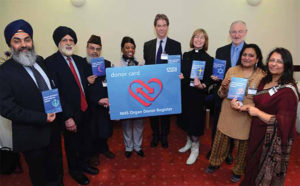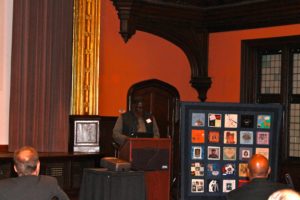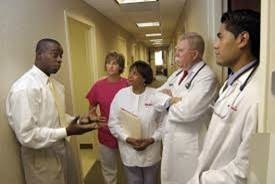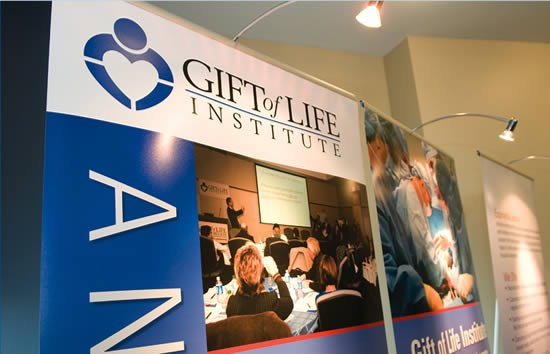One of the most important responsibilities of anyone working in the donation field is ensuring that families of potential donors are able to look back on their decision and know that they would make the same decision under less traumatic circumstances. When decisions are made in the context of the values and beliefs that guide the life of a family or individual, then we can be confident about the durability and rightness of those decisions, whether the decision is “yes” or “no.”
 It has been well documented that the vast majority of the world’s religions do not oppose organ and tissue donation. Generally speaking, the premise behind most faith groups is to do good. Many religious leaders emphasize that this can be accomplished, in part, by donating organs or tissue after death; others leave the decision to the individual.
It has been well documented that the vast majority of the world’s religions do not oppose organ and tissue donation. Generally speaking, the premise behind most faith groups is to do good. Many religious leaders emphasize that this can be accomplished, in part, by donating organs or tissue after death; others leave the decision to the individual.
Many faiths believe in the duality of the mind and body; that they are separate and that when the body has died, the spirit has already departed. This can make the decision about donation less complicated than for families who believe the spirit is in every cell of the body.
When faced with the reality of death—either their own or that of a loved one—most individuals are extremely cautious not to violate what their faith dictates. Often, they seek the counsel of their faith leaders. As donation professionals, we cannot assume that all faith leaders are well-informed about the teachings in their own faith on the subject of donation. This being the case, it is vitally important to talk with them and share information before they participate in the donation conversation.

Many OPOs have taken steps to create dialogue with faith leaders in their community. For example, National Donor Sabbath, observed annually in November in the United States, seeks to educate faith-based communities about the need for organ, eye, and tissue donors. This national initiative partners with faith leaders, houses of worship, and faith-based organizations to educate its congregations about the critical need for donors and to dispel myths and discuss religious beliefs about the donation process.
Stacey Caruthers has spent the last 20+ years of her professional career helping to advance organ and tissue donation. She was with Indiana Donor Network (formerly Indiana Organ Procurement), serving as both Manager of Family Services and as a Family Services Coordinator.
Many years working on the front lines of family care have enabled me to recognize the importance of the collaborative approach to comprehensive end-of-life care, which, in many cases, includes donation. Because the ultimate goal is a supportive environment when making end-of-life decisions, a shared commitment works best for all stake holders involved in the care of patients and their grieving families.
As a former Manager of Family Services, I’ve heard many OPO colleagues discuss the challenges often encountered during donation cases. Many hospital partners also shared with me the challenges they were presented with during a potential donor case. After comparing the two group’s perceptions, it became evident that there was ample opportunity for stronger and clearer collaboration between both sides, and that the challenges both groups expressed were most often the result of communications breakdowns.
A good starting point for consistent collaboration should be an effective huddle between the OPO and hospital team as soon as the patient meets clinical triggers, repeated as often as needed to assure that all parties are on the same page. The huddle should be comprised of those involved in the care of the patient, including the physician, nurse, chaplain, social worker and members of the palliative care team. Showing discipline to this best practice can provide our hospital partners with a clearer picture of our activities and limit confusion on potential donor cases which leads to optimal care for the family.
By removing the old mindset of working in silos, we can foster stronger relationships that will benefit everyone. We will also create an environment that will allow us to make full use of our hospital partner’s expertise while building trust so they will do the same in return.

Stacey Caruthers has spent the last 20+ years of her professional career helping to advance organ and tissue donation. She was most recently with Indiana Donor Network (formerly Indiana Organ Procurement), serving as both Manager of Family Services and as a Family Services Coordinator.



